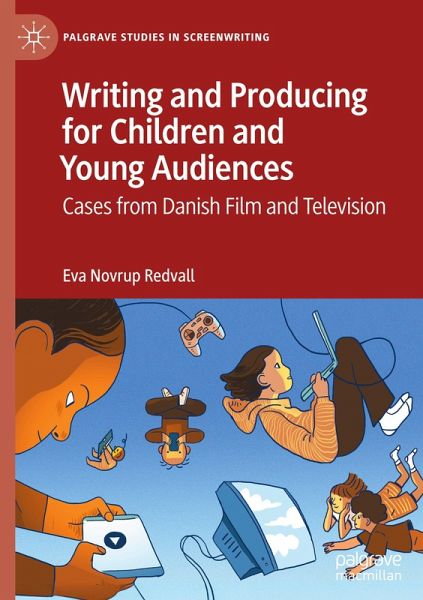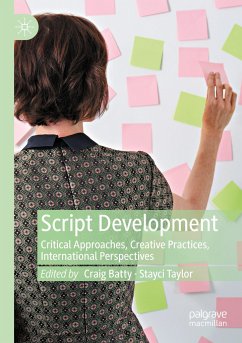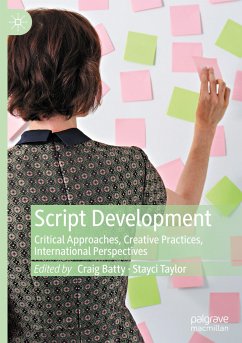
Writing and Producing for Children and Young Audiences
Cases from Danish Film and Television

PAYBACK Punkte
49 °P sammeln!
This book offers a comprehensive analysis of the writing and production strategies used in live-action fiction film and television produced for children and young audiences, in a period marked by remarkable change in screen consumption. Building on ideas and research from the fields of screenwriting, production, and media industry studies, the book uses case studies of Danish film and television productions targeting children - from toddlers to teenagers - to explore general challenges for reaching young audiences in the multiplatform mediascape, as well as to identify specific screenwriting p...
This book offers a comprehensive analysis of the writing and production strategies used in live-action fiction film and television produced for children and young audiences, in a period marked by remarkable change in screen consumption. Building on ideas and research from the fields of screenwriting, production, and media industry studies, the book uses case studies of Danish film and television productions targeting children - from toddlers to teenagers - to explore general challenges for reaching young audiences in the multiplatform mediascape, as well as to identify specific screenwriting practices and production frameworks. The study investigates industry notions of children and adolescents as a particular audience, exploring new methods of grounding productions for them through more inquiry-driven and co-creative writing and production practices, combined with new forms of knowledge-sharing and talent-training initiatives.














